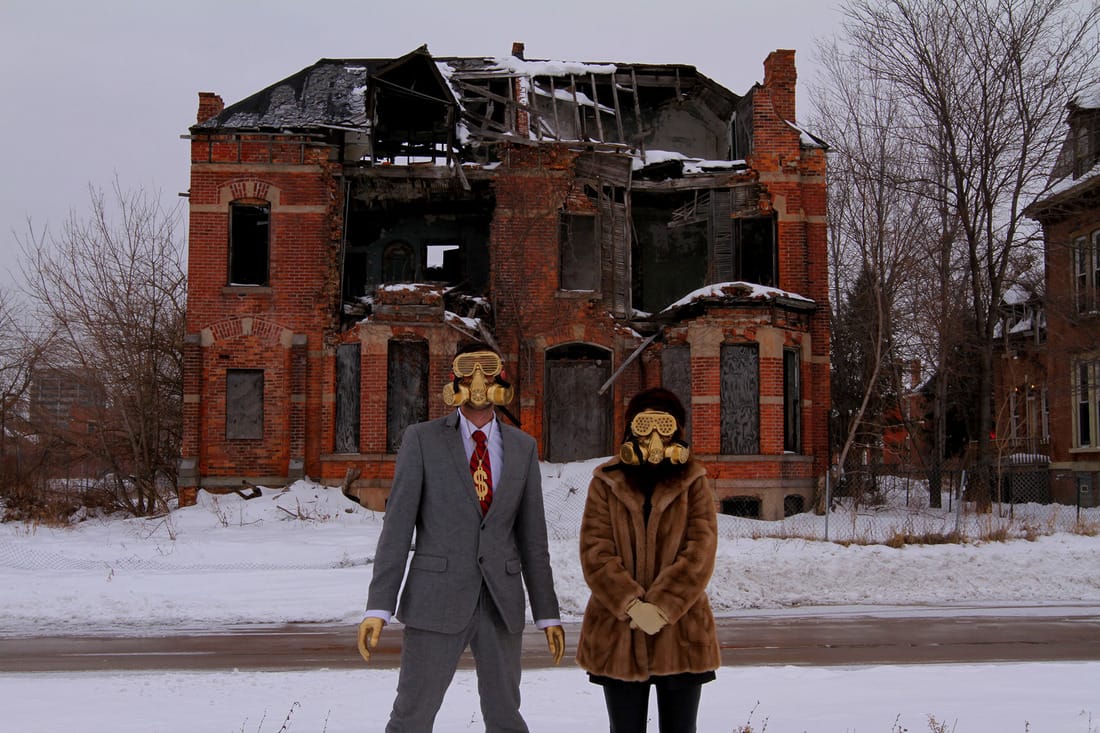Rating: 3 out of 5 starsGenre: Documentary Run Time: 1 hour 30 minutes, Not Rated Directed by Heidi Ewing & Rachel Grady (Jesus Camp, Freakonomics) Detropia is the sort of documentary that is just as compelling as it is frustrating. It shows the once-flourishing city of Detroit for what it is now - a man-made disaster site whose remaining citizens are fighting desperately to pick up the shattered pieces of what once was. It offers an unflinching glimpse at Detroit's abandoned houses, buildings and residents. But for a film trying to act as a cautionary tale for the rest of the nation, it offers very little in the way of answers, or even a clear message as to what exactly went wrong. The talented directing duo of Heidi Ewing and Rachel Grady (Jesus Camp, Freakonomics) do not use narration in their films, but here narration may have been helpful to tackle such a complex topic as what led to a city's ruin. We get to know a few residents of the city, and through their eyes Detroit is framed as beautiful, yet tragic.
Take for example, a union leader who must tell his workers that they must take drastic pay cuts or the company will leave town. The offer from the company is insulting...an offer meant to be refused by any person with a shred of decency. There is optimism in the film, from residents who feel like the catastrophic condition in the city is just signs of a poor economy and will soon pass. Mayor Dave Bing is shown in a positive light, although there is strong opposition from Detroit citizens who have heard enough talk and are ready for action. Who can blame these folks for being defensive? We know that Detroit was once a booming city built on the power of the auto industry, but we are left to draw are own conclusions as to what exactly led to the city's current demise. One glaring observation: Whenever we are shown footage in the film of a bustling Detroit in the 50s and 60s, we see a predominantly white population. When we are shown the current struggles of Detroit, we seem to only hear from African-American residents. Race and segregation, the film seems to say, has played a part in things. The filmmakers pick up on the strong influence of art in Detroit, and weave scenes from performances at the Detroit Opera House throughout the film. If nothing else, Detroit seems the perfect location for an opera. The city is shown as a blank canvas, waiting to be re-created in the image of its future inhabitants. Where the film leaves off, it shows a few young people - white people - moving into Detroit for artistic inspiration. Again, the underlying racial threads portrayed in the film were hard to ignore. While Detropia is emotionally painful in some ways, literally hitting close to home, it is also a very well-made film that brings up a lot of questions. Further, it should successfully draw attention to Detroit, although if it is the right kind of attention remains to be seen. For once though, it is good to know that Detroit isn't being shown in a national light as the crime capital of the world. There is a hopeful feeling despite the despair. But what is it suggesting other cities do to prevent this kind of economic collapse? Where did Detroit go wrong, or is it just the first victim to fall to a larger, national problem? Detropia stands on the rooftop and gives a heartfelt warning shout, but we're left not knowing how to react.
0 Comments
Leave a Reply. |
Looking for a specific movie or review?
Search Below: Categories
All
Archives
May 2024
|
tom santilli movie reviews
Tom Santilli is a professional film critic, TV personality, host and
the Executive Producer of Movie Show Plus.
He also is the featured film critic appearing on WXYZ Channel 7 Action News in Detroit,
and appeared weekly on FOX-2 in Detroit from 2016-2020.
Feel free to use the "search" below to find your favorite titles.
TOM'S GRADING SCALE:
B- and above: Thumbs Up
C+ or below: Thumbs Down
Currently Airing:Check Local Listings
|
For more information on Movie Show Plus, Email: |


 RSS Feed
RSS Feed
